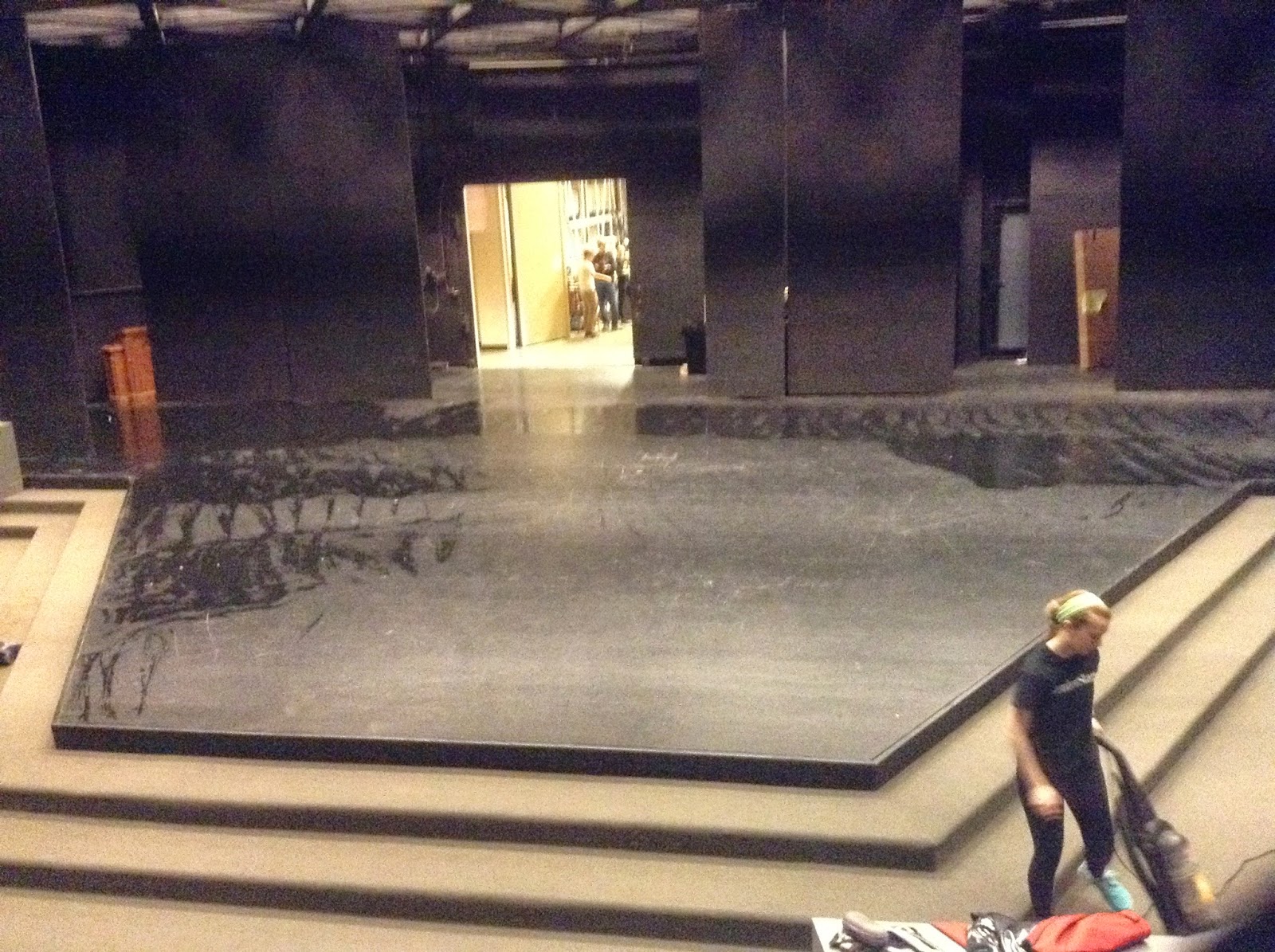Hey,
The first day on the campus of Centre College could not have been better. The obvious thing to share is that the theater department set an attendance record with the play. The auditorium seats 365 and they had about 15 people standing and sitting in the aisles. This is also a record number people to see a play by Lindsay Joy at any one time. That was very exciting. The entire audience including the President of the college were very engaged in the production. Everyone immediately stood at the end. That was very satisfying and gratifying.

However, the best part of the day was that every conversation about the project, over lunch, at senior colloquium, dinner, pre-show, and post show was about the value of the process. Centre really appreciated the value of the process. In the half way point of this process the students got a major re-write. The rewrites added new information about characters, relationships, and given circumstances. It was a big shift for the student actors. I wrote in an earlier post about the value that each of the collaborators brought to the development of the script. However, today's conversation was about the value for the students to experience the process. To realize that things don't come out 'finished' and that with each question begs the next question. I understood the value of asking the next question because it deepens and clarifies the emotional life and points of view of a play. Making the world of the play specific deepens the audience in the personal journey of the characters.
Matt Hallock, the Department chair and set designer, put the value in of this process in a different context for me. Outside of just theater. I was grateful for this because my goal with this process was not to develop a play but to develop artists. Matt highlighted for me that one of his primary educational goals was to highlight the value of creativity and having students get comfortable with remaining in the unknown for a longer period time. I asked him a bunch of questions that all amounted to "Why?". He talked about how there is a tremendous amount of access to knowledge about how to do something (I'm not sure if he said or I inferred that he was referencing tools such as Google, youtube, etc) has made our learning process very practical. Instead of creative and investigative. The value of sitting in the unknown was summed up in that it makes us better thinkers. As we strengthen our ability to think we are able to come up with new answers and ask questions we wouldn't otherwise ask. We learn better because we become better thinkers.
When I hear the enthusiasm from the student artists involved in the process at Ashland or Centre College, I believe the value of spending time in the unknown is clear. The process of exploration and discovery in bringing a new play to life seems to engage them through finding answers for the first time. There isn't a guide to how this play has been done before. Or even a definitive answer about the world of the play - because each question allows for the possible change of the world.
After lunch we went to senior colloquium and were greeted with the question of what is art? A simple question. At first I wasn't sure how this huge question related to our project but as the hour long conversation unfolded it became clear that we were talking about what it takes to bring a new play to life. The absolute personal investment of the character along with the exploration of the shifting world (and script) in partnership with the practical craft of knowing your lines, having the technique and control over your 'instrument' to deliver what was technically required for the role. The process of bringing a new play to life was engaging all aspects of their artistry and it was thrilling to watch them discover for themselves the need to bring both a technical knowledge and individual creative investment to this, and all, projects.
One of the things I value most from the schools in this process is that they agree to invest in the producing a play that everyone is aware is in process, or is simply said is unfinished, when it is shared with the public. The audience's response to the work is truly the greatest learning tool for the development of the play.

As I mentioned earlier, they were engaged. They were entertained. They stood. They stayed for a talk back with the team. The first person's questions were about process: how was the experience at each school informing the experience at the next? How were we documenting the experience of the playwright? How could we repeat this process in the future and improve upon it? And then all of the questions were about the process. The process for the student actors, the playwright, the director, etc. No questions about specific things in the text. Those comments came afterward in casual conversation. But the half hour conversation in the auditorium was all about the creative and development process. The audience was invested, were happy to be part of the process, and immediately saw the value of experience for the play, the students, and the community.
Also one of the great joys of the evening was that Mason, who played Conner at Ashland, made a six hour drive to see the play. We had a wonderful conversation about the rewrites and the difference in productions. Mostly, I appreciated his love for the play and project - and the opportunity to connect him and Josh who is playing Conner at Centre.
There is much more to share. I am looking forward to our second performance. Thank you to everyone for sharing this experience with us.
Talk with you soon.
Padraic










